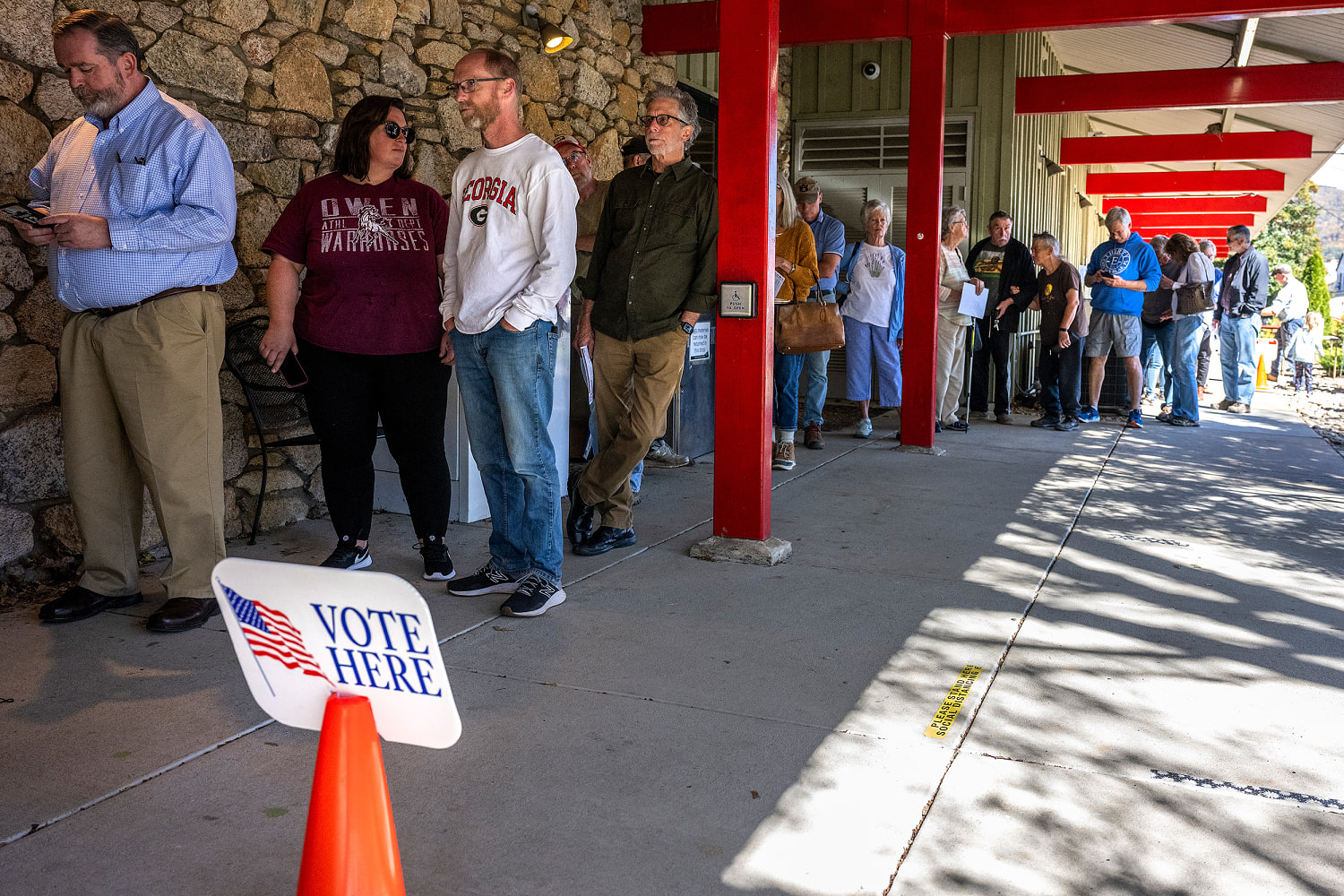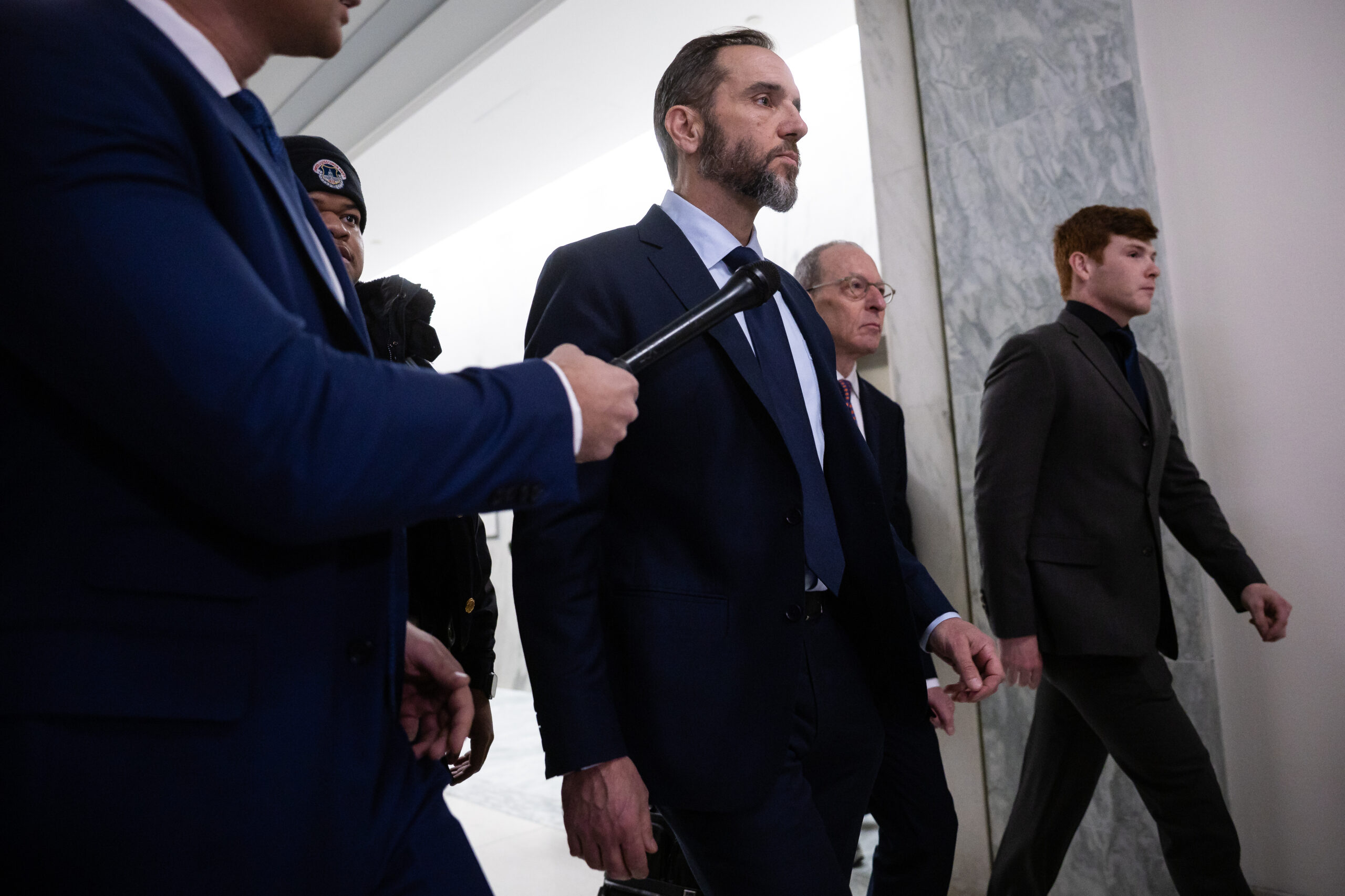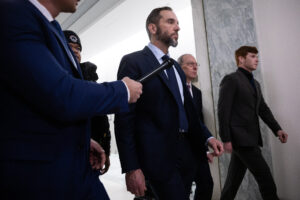Politics
North Carolina voters have seen it all. There’s still cause for optimism.

This article is the third in a five-part series called “Protecting the Election.” As former President Donald Trump and many of his allies refuse to concede his defeat in the 2020 election, this BLN Daily series brings election law and policy experts to explore the many threats to certifying election results at both the state and national levels.
The 2024 election will be a wholly different experience for North Carolina’s more than 5.5 million voters.
North Carolina voters — including college students and voters living in storm-affected areas — are voting early in record numbers.
After years of attacks on voting rights by the gerrymandered GOP supermajority in the state Legislature, North Carolina voters will be required to show a photo ID at the polls for the first time in a presidential election. Coupled with new restrictions on vote-by-mail and lawsuits targeting student voters, Republicans are doing everything they can to suppress the vote among core Democratic voting blocs. These human-made barriers to voting have only been exacerbated in western North Carolina by Hurricane Helene and its aftermath.
Despite these new challenges, North Carolina voters — including college students and voters living in storm-affected areas — are voting early in record numbers, and dedicated election officials across the state are doing everything they can to ensure that voting is safe and convenient.
While most North Carolina voters possess photo ID that meets the state’s new voter ID requirements, there has been some confusion among many voters about this new law. Most importantly for voters, if a voter has been unable to obtain an acceptable photo ID because of lack of transportation, lack of knowledge about the ID requirement or any other reasonable impediment, they may still vote provisionally and complete an ID exception form. While questions linger about how county boards of elections will process exception forms, voters without IDs can still confidently vote even if they lack appropriate photo identification.
A flashpoint in North Carolina’s ongoing voter ID fight is the acceptability of photo IDs from North Carolina’s colleges and universities. After rounds of lawsuits, statutory revisions and rulemaking, students and employees at North Carolina’s colleges and universities are now permitted to use their school IDs for voting, but only if the school’s ID has been pre-approved by the state board of elections. While the board of elections has approved the use of over 130 different school IDs for 2024, these approvals have not been without controversy.
In August, the board of elections approved the use of UNC-Chapel Hill’s digital student ID, the primary form of campus ID for students, which is accessible using a mobile device. The Republican National Committee and state GOP soon filed suit, arguing that, under North Carolina’s voter ID law, only physical ID cards are permitted. While a trial court judge initially ruled that the digital IDs met voter ID requirements, the state court of appeals overruled the trial courts’ decision. The higher courts’ ruling has led to a scramble by UNC-Chapel Hill administrators and student advocacy groups to ensure that students who do not have another acceptable form of voter ID are able to obtain a physical student ID card free of charge.
In the westernmost third of North Carolina, the devastation caused by Hurricane Helene has created significant hurdles to voting.
In addition to implementing voter ID, North Carolina’s Republican Legislature has also further restricted vote-by-mail options. In keeping with the new voter ID requirement, vote-by-mail voters must now submit a photocopy of their ID or a form claiming a voter ID exception along with their ballot. These additional steps make it incrementally more difficult for voters to successfully submit their mail ballot.
Another wrinkle is that previously a voter could mail a ballot by Election Day and have it counted as long as it was received at the county board elections within three days after Election Day. Now, however, mail ballots must be received by the close of voting on Election Day in order to be counted.
In the westernmost third of North Carolina, the devastation caused by Hurricane Helene has created significant hurdles to voting. Helene’s winds and floods destroyed hundreds of homes, displaced thousands and left tens of thousands more still without electricity or running water.
However, in the storm’s wake, the Republican-led Legislature, Democratic majority state board of elections and election administrators across the affected region have come together to provide voters and local election administrators the resources and flexibility to conveniently cast their ballots this fall. Because of this rapid response, 76 of the originally planned 80 early voting sites across the region opened at the start of early voting last week. Additionally, voters in the affected counties have been given the option to return vote-by-mail ballots at any board of elections office or early voting site in the state. Under an existing carveout in North Carolina’s voter ID law, voters who are unable to provide a photo ID because of the natural disaster are excused from presenting photo ID provided they complete the simple exception form.
Despite yearslong Republican voter suppression efforts and the worst natural disaster in state history, there is also cause for optimism. Early voting totals are far outpacing 2020 numbers — and the vast majority of voters across the state are voting without issue.
In the aftermath of Helene, Republicans and Democrats have come together to make sure voters across the state are able to safely and conveniently cast a ballot. Perhaps most importantly, the professional election administrators in North Carolina’s state and county board of elections are uniformly committed to ensuring that every eligible voter is able to cast a ballot and that every ballot is counted in a fair and secure process.
Seth Morris
Seth Morris is an attorney in Raleigh, North Carolina with experience in voting rights and election law.
Politics
Jack Smith plans to double down on the need for his Trump investigations

Republicans and Democrats are hoping for a blockbuster hearing from the former special counsel, who is testifying publicly for the first time about his efforts to charge the president…
Read More
Politics
Former Trail Blazer Chris Dudley to run again for governor of Oregon
Former Portland Trail Blazer center Chris Dudley has launched a second attempt to run for governor of Oregon as a Republican, a long-shot bid in a blue state even as the incumbent has struggled in polls.
Dudley, who played six seasons for the Trail Blazers and 16 for the NBA overall, said in an announcement video Monday that he would ease divisiveness and focus on public safety, affordability and education in a state where support for Democratic Gov. Tina Kotek has been low for her entire tenure.
“The empty promises, the name calling, the finger pointing and fear mongering that has solved nothing must stop,” said in his election announcement. “There are real solutions, and I have a plan.”
Dudley is one of the most successful Republicans of the last 25 years in Oregon, coming within 2 points of defeating Democratic Gov. John Kitzhaber in 2010.
“I think it’s imperative that we get somebody from outside of Salem who’s away from the partisan politics, away from the name calling, the finger pointing,” Dudley told The Oregonian. “Who has the expertise and background and the ability to bring people together to solve these issues.”
In his election announcement, Dudley spoke about his love of the state and frustration people have with the current state of politics. He mentioned education, safety and affordability as key issues he plans to address but did not give any key policy specifics.
Dudley is a Yale graduate who worked in finance after leaving the NBA. A diabetic, he also founded a foundation focused on children with Type 1 diabetes.
In the GOP primary, Dudley faces a field that includes state Sen. Christine Drazan, who lost to Kotek by nearly 4 percentage points in 2022.
Other candidates include another state lawmaker, a county commissioner and a conservative influencer who was pardoned by President Donald Trump for his involvement in the Jan. 6, 2021, riot at the U.S. Capitol.
Kotek is a relatively unpopular governor. Her approval rating has consistently remained under 50 percent her entire term in office, according to polling analysis by Morning Consult. She has not announced her campaign but is expected to run for reelection.
Despite expectations that Democrats will do well in the midterms, a number of Oregon Republicans have become more involved in state politics since the last election. Phil Knight, a co-founder of Nike, donated $3 million to an Oregon Republican PAC focused on gaining seats in the state Legislature in October. It was his largest political donation to date, according to the Willamette Week.
Dudley received significant backing from Knight in his 2010 race, but it’s unclear if he will get the same level of support this time around.
Any Republican faces an uphill battle for governor in Oregon, where a GOP candidate has not won since 1982 and where Democrats have a registration edge of about 8 percentage points.
-

 The Dictatorship11 months ago
The Dictatorship11 months agoLuigi Mangione acknowledges public support in first official statement since arrest
-

 Politics11 months ago
Politics11 months agoFormer ‘Squad’ members launching ‘Bowman and Bush’ YouTube show
-

 The Dictatorship5 months ago
The Dictatorship5 months agoMike Johnson sums up the GOP’s arrogant position on military occupation with two words
-

 Politics11 months ago
Politics11 months agoBlue Light News’s Editorial Director Ryan Hutchins speaks at Blue Light News’s 2025 Governors Summit
-

 The Dictatorship11 months ago
The Dictatorship11 months agoPete Hegseth’s tenure at the Pentagon goes from bad to worse
-

 Politics11 months ago
Politics11 months agoFormer Kentucky AG Daniel Cameron launches Senate bid
-
Uncategorized1 year ago
Bob Good to step down as Freedom Caucus chair this week
-

 Politics9 months ago
Politics9 months agoDemocrat challenging Joni Ernst: I want to ‘tear down’ party, ‘build it back up’



